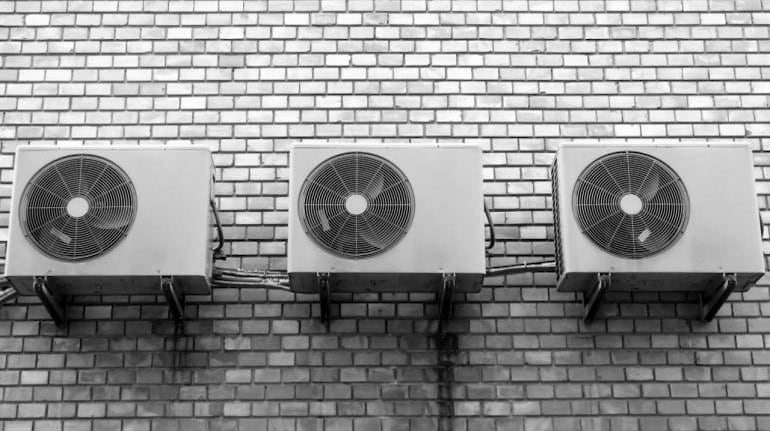



How did the fossil-fuel era begin? With Europeans heating their houses in winter.
The Industrial Revolution would likely never have started if medieval Britain hadn’t turned to coal swept from the beaches of Northumbria to replace firewood from its dwindling forests. One of the world’s first air pollution laws was a 1306 proclamation prohibiting the burning of “sea-coal” in London. We’ve been heating our homes for so long that we take the practice, and its carbon footprint, for granted.
Even so, under almost every plausible scenario, the climate in 2050 will be suffering more from heating homes than cooling them. If we want to see an energy transition that addresses human welfare and global inequality, we should be more relaxed about the rise of air conditioning in developing countries, and much more worried about the persistence of conventional heating in rich ones.
The numbers are stark. Globally, heating caused about four times more emissions than cooling last year, according to the International Energy Agency. Electric heaters alone account for about two-thirds more emissions than every air conditioner on the planet — and that’s the tip of the iceberg, since the majority of domestic heating is done with boilers powered by gas, fuel oil or coal.
Why, then, is there so much more concern about the relatively small carbon footprint from cooling?
One factor is that the direction of travel is different. A warmer planet where incomes are climbing fastest in countries close to the equator is one where cooling demand will rise rapidly in the Global South. Meanwhile, milder winters, stagnating population growth, and the spread of insulation and heat pumps should reduce the footprint from heating in the Global North.
There’s good reason for optimism that technology, efficiency and a warming climate will, indeed, make heating less carbon-intensive over the coming decades — but that’s not happening yet. Over the decade through 2022, it rose by 158 million metric tons of CO2, little less than the 180 million-ton increase in cooling.
In Delhi, peak power demand jumped 64 percent over the decade through 2018, compared to a 42 percent increase in total electricity consumption, thanks largely to the uptake of air conditioners that often account for half of the city’s energy usage. That peak-and-trough pattern is fiendishly difficult for grid planners to manage, especially as households are more likely to use air-con in the evening and at night, rather than in the middle of the day when solar panels are humming.
The solution to this, however, is not to scold the billions in developing countries who will buy their first cooling units over the coming decade. In many cases, those appliances could literally be life-savers when the temperature rises to levels that strain the limits of survivability. Instead, we should look for ways to give everyone a better standard of living with a lower carbon footprint.
Building codes should also be introduced, enforced and tightened. Air conditioners are often just making up for the deficiencies of bad design. Generous shading and floor plans that allow cross-ventilation are the best way to reduce cooling demand in the billions of homes that rapidly urbanising developing countries will build over the coming decades.
Above all, though, the world should accept that a just energy transition is inevitably going to see poorer countries use more air-con to reach levels of domestic comfort that richer locales take for granted.
Developed nations still struggling to give up their fossil-fired boilers for more efficient heat pumps — let alone turn their thermostats down a degree or two, insulate their roofs and walls, or keep windows closed in the depths of winter — must get their own house in order before they start preaching to the rest of the world.
David Fickling is a Bloomberg Opinion columnist covering energy and commodities. Views are personal and do not represent the stand of this publication.Credit: BloombergDiscover the latest Business News, Sensex, and Nifty updates. Obtain Personal Finance insights, tax queries, and expert opinions on Moneycontrol or download the Moneycontrol App to stay updated!
Find the best of Al News in one place, specially curated for you every weekend.
Stay on top of the latest tech trends and biggest startup news.